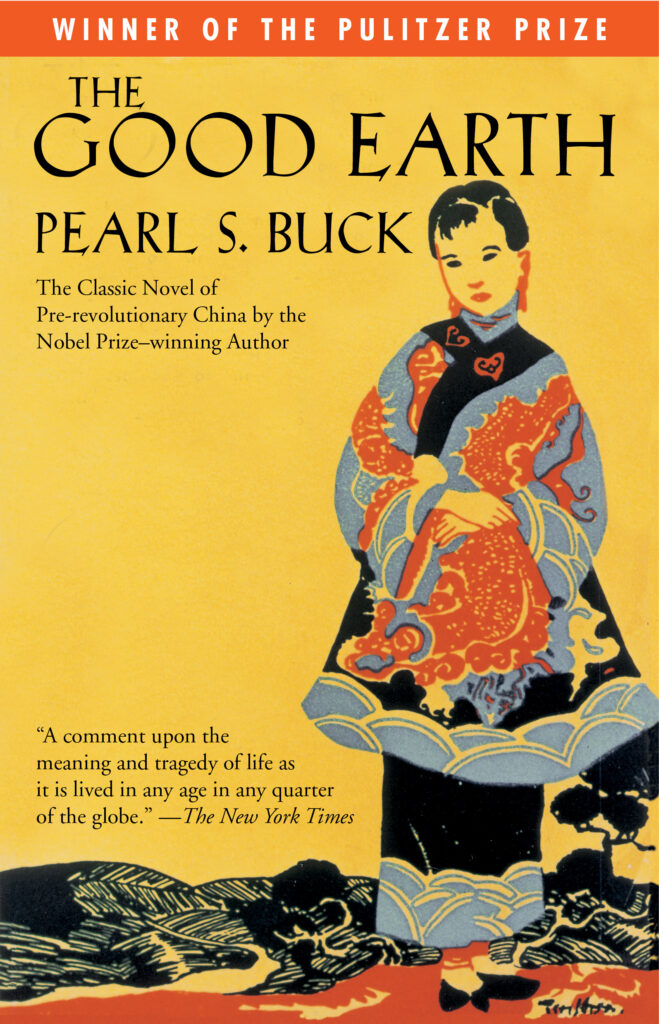The Good Earth, a timeless Pulitzer Prize-winning masterpiece by Pearl S. Buck, follows the life of Wang Lung in 1920s China. The book, first published in 1931, was the best-selling novel in the United States for both 1931 and 1932. The author grew up in China, a child of missionaries.
Wang Lung is a farmer in a rural village and lives with his widowed father. The novel begins on the day of his marriage to O-Lan, a slave at the House of Hwang. He doesn’t really know his intended bride, but since his mother died, he needs someone to cook, care for the house, and see to his father’s comfort. Wang is a farmer, dedicated to his land. Although they are poor, it is a good marriage and O-Lan is a capable homemaker in their modest dwelling. Wang works hard on the land, often with O-Lan at his side. They begin to have children, births which O-Lan accomplishes without assistance.
The story takes us into Wang Lung’s old age, through good times, droughts, famine, trials with family, land acquisitions, and wealth. Wang learns that although satisfying, wealth has its burdens, too.
I first read The Good Earth when I was twelve years old. One Seattle summer day I walked to a nearby shopping district and, curious, went into a second-hand store. I discovered a bookcase full of old hardcover books. Among the books were Jane Eyre by Charlotte Brontë and The Good Earth which I bought for twenty-five cents each. At that time I didn’t know what a “classic novel” was, nor had I ever heard of either book. I read both novels that summer. The Good Earth was an eye opener for me—the way of life in China those days, taking a second wife, class distinctions with the extreme poor and how they were treated, and with the extreme rich and their sense of entitlement. I treasured those books, and though I didn’t know they were “classics,” I knew they were special. Now, with this second reading, I am again impressed with the depth of The Good Earth. It is a masterpiece.


